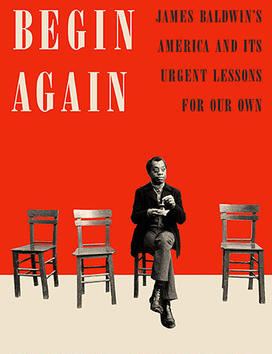
PAW asked Dwight A. McBride ’90, who became president of The New School in April, to recommend three books that help explain the moment we’re in. McBride was provost and executive vice president for academic affairs at Emory University, where he was also the Asa Griggs Candler Professor of African American Studies.
A leading scholar of race and literary studies, McBride has published award-winning books, essays, and articles, and edited volumes that examine connections between race theory, Black studies, and identity politics.

The Fire Next Time
By James Baldwin
Hands down, this book is one of the most important treatments of the deleterious effects of race and white supremacy in the U.S. ever written. Upon a recent re-reading — and it pains me to say this — it remains as relevant today as it was when Baldwin first published it in 1963.

Begin Again: James Baldwin's America and Its Urgent Lessons for Our Own
By Eddie S. Glaude Jr. *97
Glaude’s book speaks powerfully to the moment we are living through in our nation. It is fundamentally a meditation on how James Baldwin worked his way back to hope from his own moment of despair about white supremacy and its (once again, quite literal) deadly effects (i.e., the murders of Martin Luther King, Jr., Malcolm X, and Medgar Evers).
At one level the book functions as a self-help book — in the very best possible way — written just for what we are going through right now. It’s compelling in that it gives us permission to feel the despair of our moment, while urging us back to hope so that we may, in Baldwin’s words, “begin again.”

The Alchemy of Race and Rights: Diary of a Law Professor
By Patricia J. Williams
For those who imagine that education or wealth protect Black people from the effects of racism and white supremacy, I recommend Williams’ book — one of my favorite works of criticism of all time. Through a compelling mix of legal analysis, critical race theory, and personal anecdote, Williams gives us a glimpse into the effects of race in our professional, political, and personal lives.









No responses yet